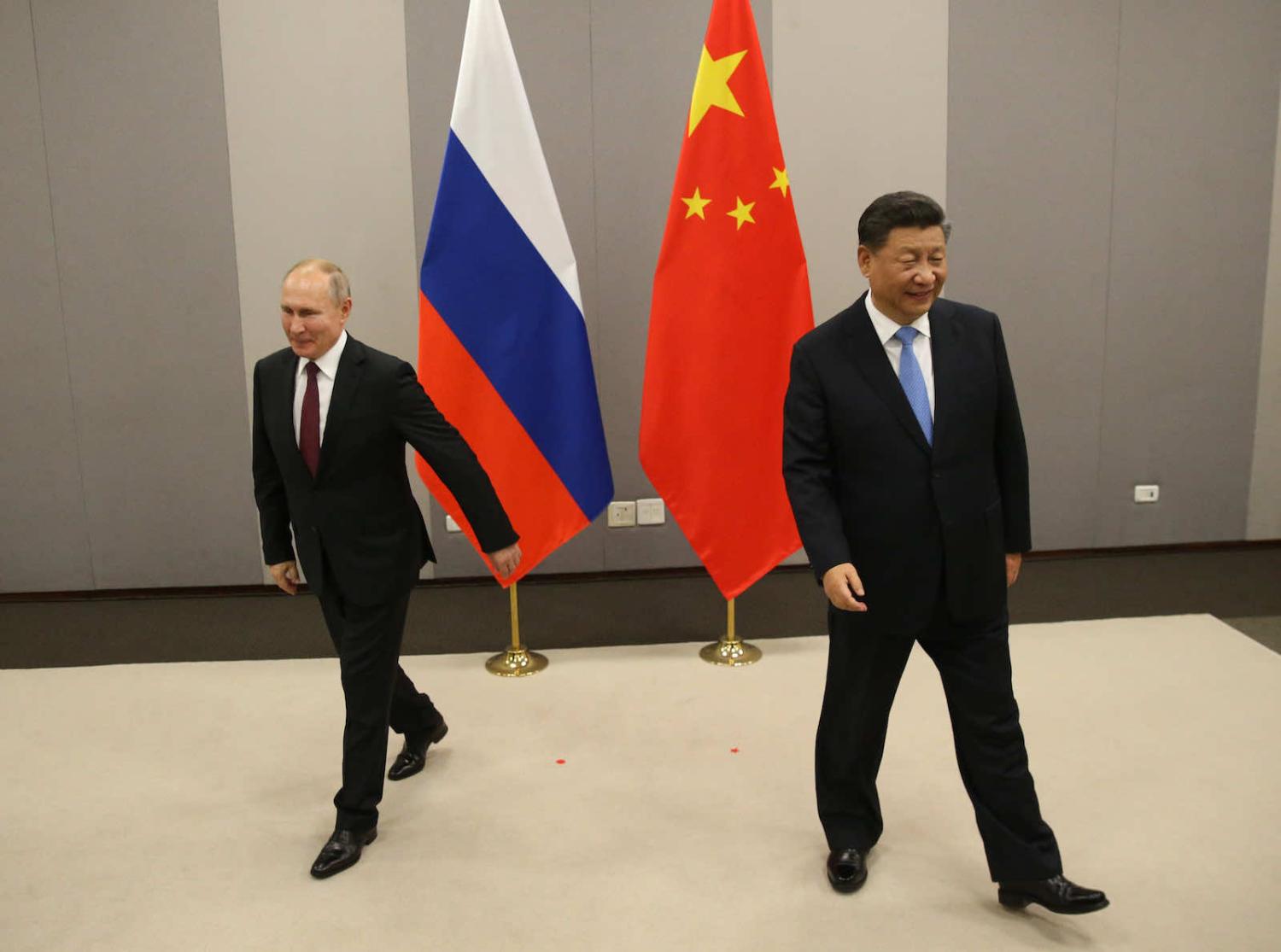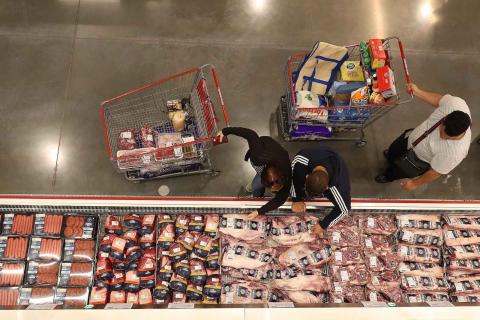Polling by Russian Field at the end of February indicated that a majority of Russians (59 per cent) supported Vladimir Putin’s “special military operations” in Ukraine. Yet, the longer the war goes on in Ukraine, and the more restrictive international economic sanctions become, factors from outside Russia will not only dent his popularity but ultimately his grip on power.
With Russia and China now linked together as an “arc of autocracy”, in Australian Prime Minister Scott Morrison’s phrase, just how similar are Putin’s and Xi Jinping’s regimes and their ability to withstand challenges to their grip on power?
Personalist regimes such as Putin’s sustain the loyalty of their supporters by granting access to material goods and rewards. Such leaders become vulnerable during periods of economic uncertainty. Levada Center’s Denis Volkov has noted that Putin will go to great lengths to engineer gravity-defying favourability ratings, to distract attention from domestic economic woes and repression. Immediately after the annexation of Crimea in March 2014, for example, Putin’s approval rating jumped to stratospheric levels, finally reaching a record high of 88 per cent in October (allowing the challenges of polling in a country such as Russia). Volkov has also shown how Putin similarly boosted his popularity following the Second Chechen War in 1999 (before he became president) and Russian-Georgian War in 2008. These conflicts occurred against the backdrop of Russia’s declining economy and the devaluation of the rouble, all of which would hurt Russians’ everyday living standards, and ultimately Putin’s popularity.
Now economic trouble looms again. In December 2021, World Bank forecasts for the Russian economy was one of caution. Economic growth rebounded to 4.3 per cent in 2021 but is expected to slow to 2.5 per cent in 2022 and to 1.8 per cent in 2023. Throw in international economic sanctions and the cost of war, the risk to Putin’s popularity become plain. The rouble has already lost 40 per cent of its value. Russians are anxious and are dashing to banks and ATMs to withdraw their money. Middle-class Russians who have come to rely on the same modern conveniences found in the West, such as using Apple Pay or Google Pay, suddenly find themselves cut off.
China can offer Russia a lifeline to in part circumvent these sanctions. However, Levada Center’s polling in December 2021 indicates 51 per cent of Russians say that Russia and Ukraine should be independent, yet friendly, countries. Putin’s durability is obvious, given his record of coercive tactics against domestic opponents and the significant resources dedicated to propaganda. But an economic crisis is likely to destabilise the material foundations of Putin’s rule. With ever fewer resources to hand out, Putin will face a growing problem of how to maintain control of his allies and supporters.
The CCP’s control over the allocation of government jobs, educational opportunities and party positions, ensure the loyalty or at least the compliance of China’s best and brightest.
China holds different lessons. Single-party regimes, like that of the Chinese Communist Party, are generally more resilient than personalist regimes. Even after Xi removed the two-term limits to the presidency in 2018, shifting China to a more personalist regime, the institution that buttresses China (i.e. the CCP) make it relatively easier for political participation, as incongruous as that may sound. Legalised opposition parties are possible in single-party governments, and China is no exception with eight minor parties holding seats in the National People’s Congress (NPC) and the NPC Standing Committee.
The CCP’s control over the allocation of government jobs, educational opportunities and party positions, ensure the loyalty or at least the compliance of China’s best and brightest. This control and distribution of resources by the CCP contribute to the high levels of satisfaction felt towards the central government, as Harvard researchers found in their longitudinal study of Chinese citizens’ satisfaction.
There is no seemingly imminent threat to the CCP or Xi. However, neither the Party nor Xi should take that for granted. Measurable changes in an individual’s material well-being are ultimately what gives the Chinese Party-state high approval ratings. For citizens who have grown used to year-on-year improvement in their material well-being, when policy failures affect their quality of life, the Party-state will be directly in the firing line of citizens’ discontent.
So amid talk of the potential for China to learn from the Russia invasion of Ukraine for its own desires over Taiwan, it appears a hostile take-over of Taiwan will not only be unpalatable but potentially disastrous given what is unfolding in Russia.
The potential effect of sanctions and the cost of war in Ukraine are factors that will undermine the material foundations of Putin’s rule in Russia. Without such foundations supporting his personalist regime, Putin may find it difficult to hold on to power in the medium to long term. Whereas for Xi who still relies on the institutional structures of the CCP to legitimise his rule, the danger for him is to deviate too much into a personalist regime like that of Putin’s thereby significantly altering the political balance from party to the leader.

